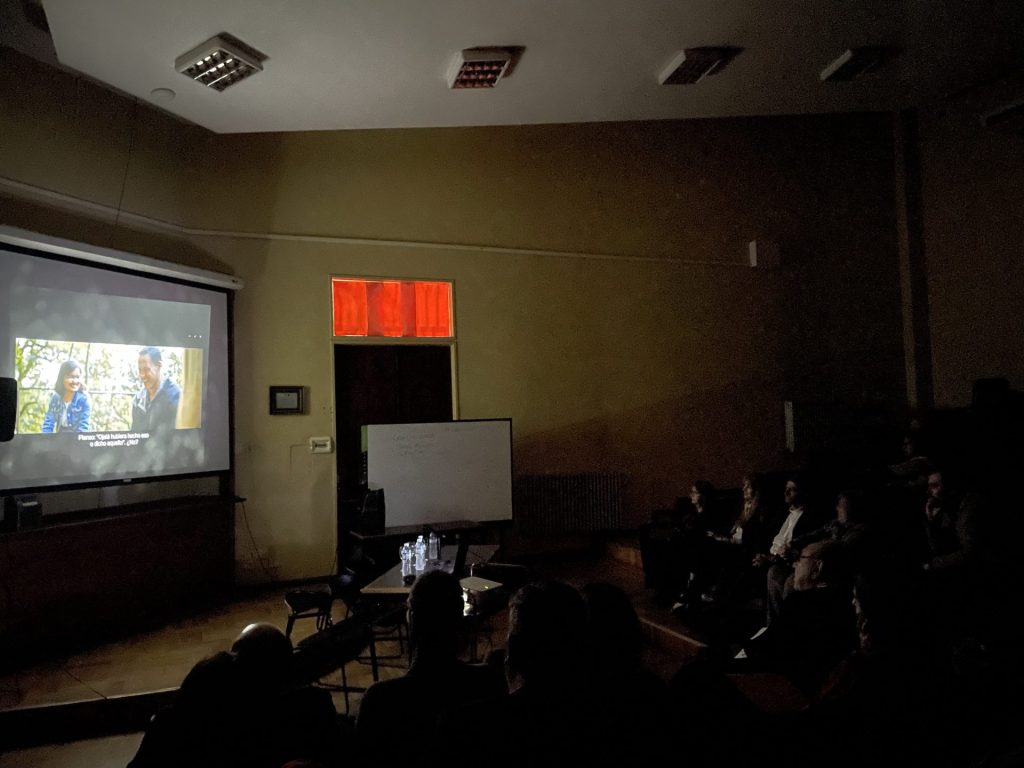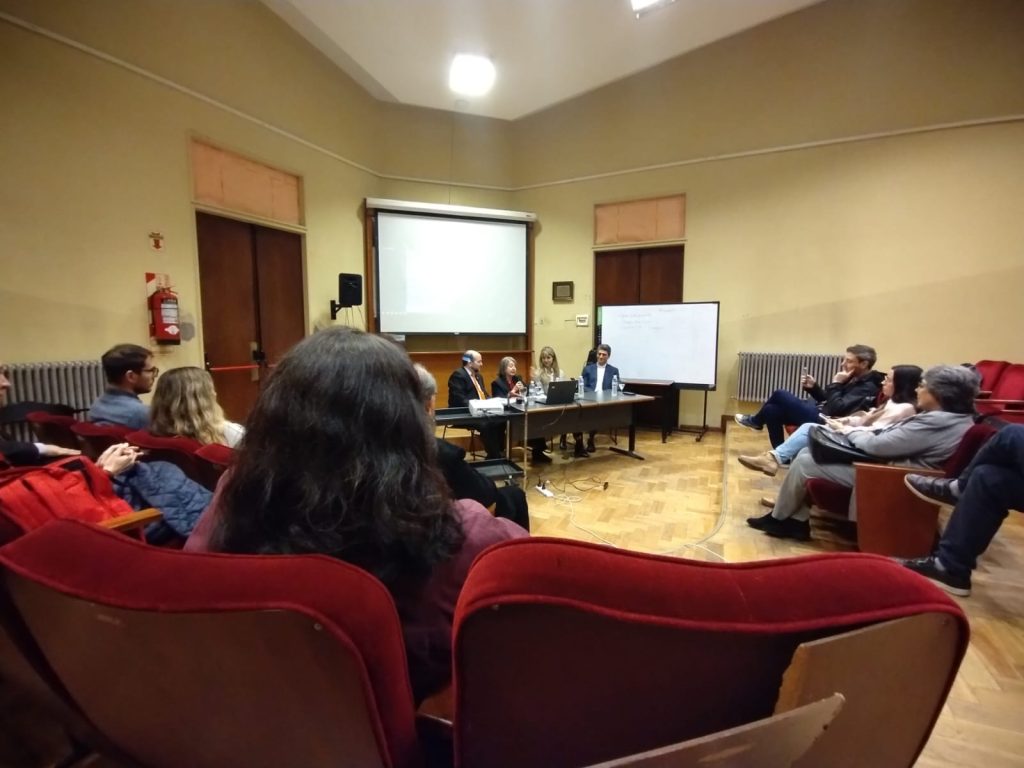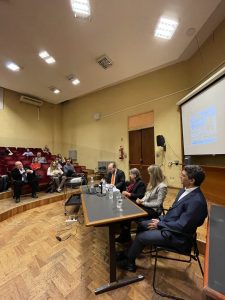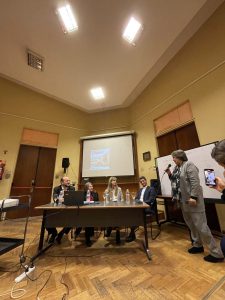Laudato Si’ Movement’s Argentina Chapter, together with the School of Economics of the University of Buenos Aires, Argentina, and the Economy of Francis project, organized a film debate with a screening of the movie The Letter and a panel of experts who talked about current socio-environmental issues.

College students, members of Laudato Si’ Movement, Francis’ Economy and the general public participated in the screening that took place on Wednesday, June 7. The Academic Dean, Dr. Ricardo Pahlen, welcomed the audience and Ms. Silvia Alonso, Argentina Chapter Coordinator, introduced the event.
Panelists included Fr. Dr. Augusto Zampini Davies, lawyer, theologian, researcher, former assistant secretary of the Dicastery for Promoting Integral Human Development; Dr. Magalí Giovanelli Petito, specialist in Environmental Law, Energy and Climate Change; and Dr. Nora Gorrochategui, postdoctoral researcher in Economic Sciences.
Among the insights and reflections left by the film, Father Augusto Zampini pointed out that Pope Francis announced the encyclical Laudato Si’ for the first time before the United Nations, highlighting the implications of the document and the impact it was intended to have on the Paris Agreement.
The encyclical proposes not only a spiritual change, but also an economic and political change. The panel wondered if it would be possible to achieve that economic change, and Nora Gorrochategui assured that “there is hope,” otherwise, “we would not be here, moved by this film.”
Another important statement was: “You cannot divide the social from the environmental”, and Father Zampini affirmed that “one cannot speak of ecology without society or society without ecology because human beings are part of the ecosystem.”
Attendees also shared their impressions of the film: “It calls me to action and gives me hope,” said one student, while a teacher said: “I was pleasantly surprised by the holistic approach of The Letter. We have to change ourselves to save nature, making an inner change that involves economic, political, cultural and even educational aspects.”
The panel was moderated by Dr. Julián D’Angelo, Director of the Corporate Social Responsibility and Sustainability Commission and Executive Secretary of the Ibero-American Network of Universities for Corporate Social Responsibility.









